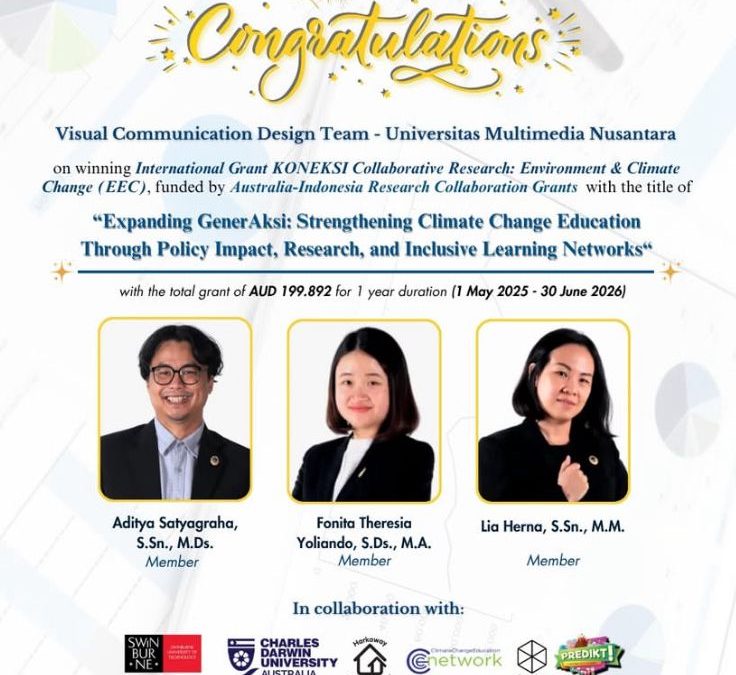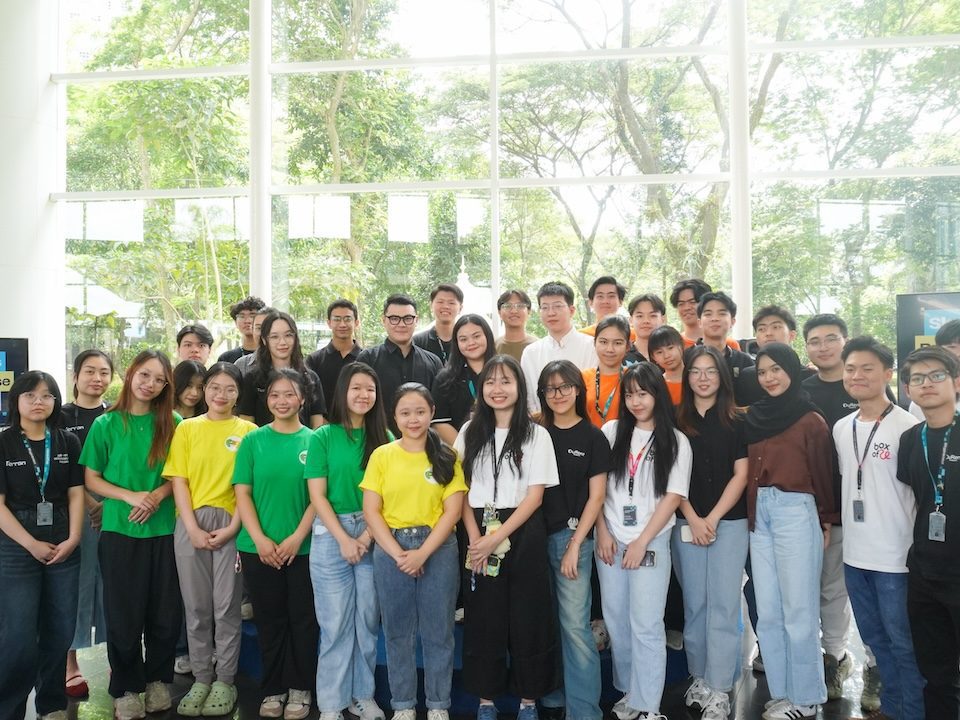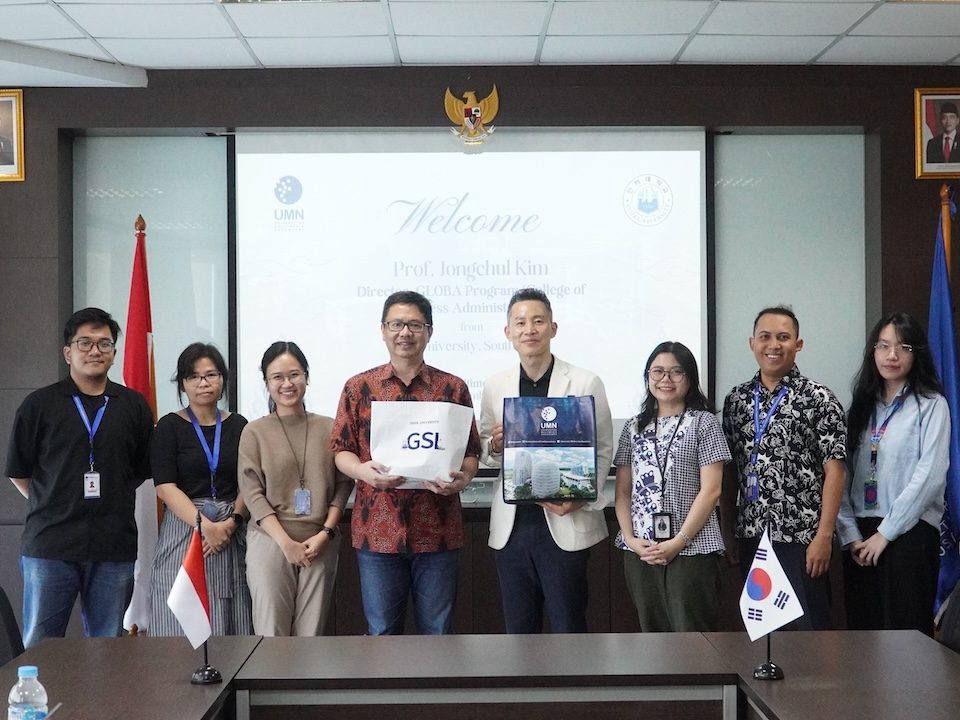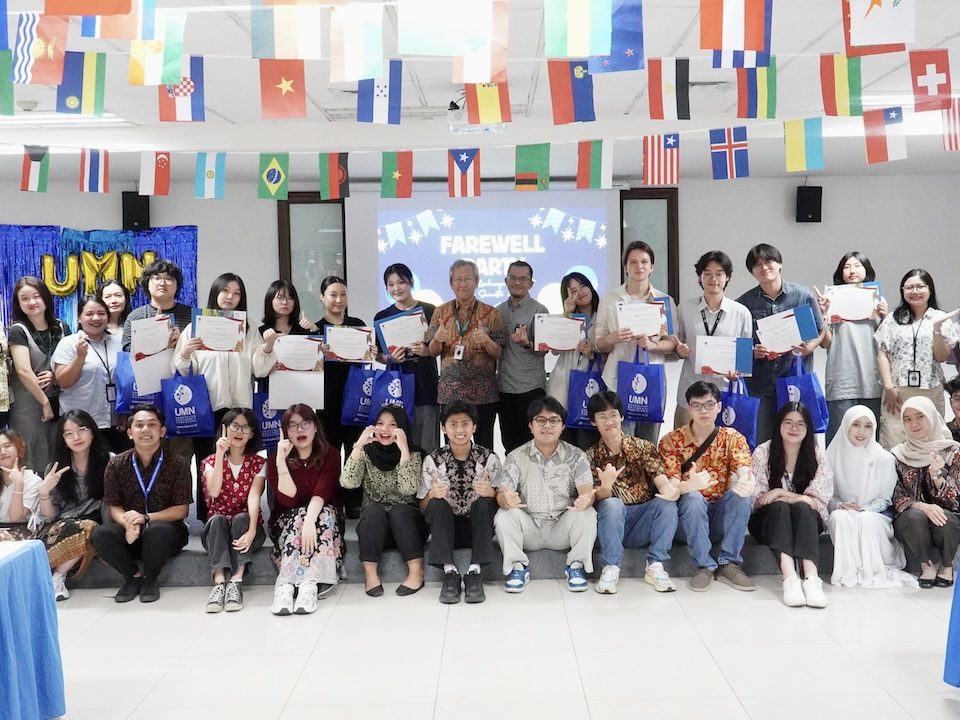
From Fear to Achievement: UMN Students’ Story at The UNESCO Tsunami United 2025 Forum
August 27, 2025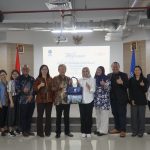
UMN Inaugurates Collaboration with City University Malaysia
August 29, 2025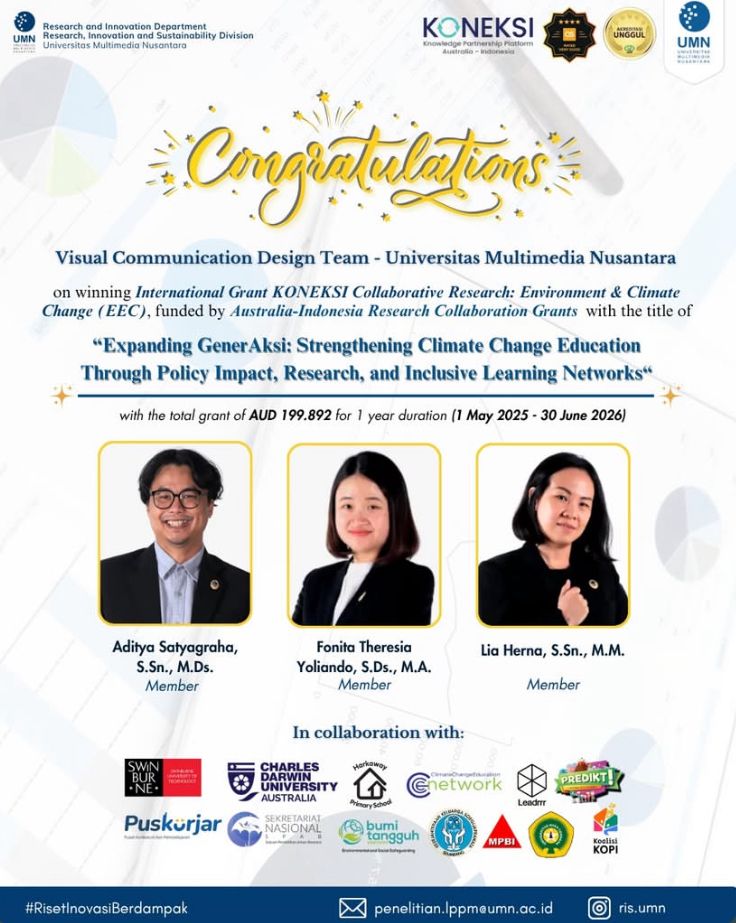
Dosen DKV UMN meraih hibah (Dok. RIS UMN)
TANGERANG – A team of lecturers from the Visual Communication Design (VCD) Department at Universitas Multimedia Nusantara (UMN) has successfully won the international KONEKSI (Knowledge Partnership Platform) research grant in the Collaborative Research: Environment & Climate Change (EEC) category. Their research project is titled “Expanding GenerAKSI: Strengthening Climate Change Education Through Policy Impact, Research, and Inclusive Learning Networks.”
According to the official KONEKSI website, KONEKSI is a collaborative program supporting partnerships between Australian and Indonesian organizations for sustainable and inclusive policies and technologies. This program, supported by both governments, aims to build equal knowledge partnerships and leverage local knowledge to address socio-economic challenges. Managed by Cowater International, KONEKSI aims to establish long-lasting relationships that support Indonesia’s inclusive and sustainable development through knowledge-based solutions.
The VCD lecturers who received the KONEKSI international grant are: Aditya Satyagraha, S.Sn., M.Ds., Fonita Theresia Yoliando, S.Ds., M.A., and Lia Herna S.Sn., M.M. Aditya explained that the focus of this grant is to strengthen collaborative research relevant to strategic issues, one of which is climate change. This is important because climate issues cannot be solved individually; they require cross-institutional, cross-disciplinary, and even cross-national collaboration. This grant provides space for research that is not only academic but also applicable, policy-oriented, and has a real impact.
“We are very grateful, of course. This grant is the result of hard work from multi-institutional and multi-disciplinary collaboration. Our team feels challenged and excited, of course, because this research has received support to move further,” said Aditya when he heard the news that the team had won the grant.
Background of the Research “Expanding GenerAKSI”
Aditya explained that this research originated from the GenerAKSI initiative, an educational board game about climate change developed for schoolchildren in East Nusa Tenggara (NTT) Province.
“We saw an urgent need: children knew about the concept of climate change but struggled to connect it to real actions in their daily lives. This new project expands the scope: not only the game but also policy research, inclusive learning networks, and advocacy strategies,” Aditya explained.
The main goal of this project is to ensure that climate education doesn’t stop in the classroom, but extends to policy-making, regional expansion, and community practices. This research aims to strengthen climate change education through policy impact, research, and inclusive learning networks.
Bridging the Gap in Climate Change Education
This research was inspired by direct field experience. Aditya shared that children expressed a desire to contribute but found that the education system didn’t provide enough space for them.
Aditya and the team saw gaps on two sides: The methods and content of learning are still one-way and lack context, and Research outcomes rarely reach the policy level or school practices. From this, the idea emerged to bridge the gap: from children to classrooms, from classrooms to communities, and from communities to policymakers.
The Role of Visual Communication Design (VCD) in Addressing Climate Change Issues
VCD plays an important role in addressing climate change issues. “VCD helps translate complex issues into experiences that can be understood and felt. In GenerAKSI, design is not just about visuals, but about building narratives, interactions, and media relevant to local cultures,” Aditya said.
VCD helps make climate change not just an abstract discourse but something close to the lives of children, teachers, and communities.
Expected Impacts from This Research
The UMN team expects three layers of impact:
- Individuals: Improved climate literacy and preparedness among children.
- Communities: An inclusive learning network that can share best practices.
- Systems: Contribution to more participatory climate education policies.
“The hope is that GenerAKSI will not only become a tool but also a movement,” Aditya said.
With this grant, the UMN research team will strengthen the interdisciplinary team from Indonesia and Australia. Aditya shared that the first step is expanding the pilot project to several regions while engaging with education stakeholders.
Aditya added, “We will also conduct ToT (Training of Trainers) for teachers in several regions in Indonesia on how to teach climate change through the GenerAKSI board game.”
Climate Change Is Also a Children’s Issue
In closing, Aditya conveyed an important message, “Climate change is an issue for all levels of society, including children. They are not just recipients of the impact, but have great potential to be agents of change.”
With the support of the KONEKSI grant, the UMN research team hopes to significantly contribute to the development of more inclusive and impactful climate change education, not only in the academic realm but also in policy and practice in our society.
Congratulations to the UMN VCD lecturers’ team on this outstanding achievement!
By Levina Chrestella Theodora
English translation by Levina Chrestella Theodora
Kuliah di Jakarta untuk jurusan program studi Informatika| Sistem Informasi | Teknik Komputer | Teknik Elektro | Teknik Fisika | Akuntansi | Manajemen| Komunikasi Strategis | Jurnalistik | Desain Komunikasi Visual | Film dan Animasi | Arsitektur | D3 Perhotelan , di Universitas Multimedia Nusantara.

